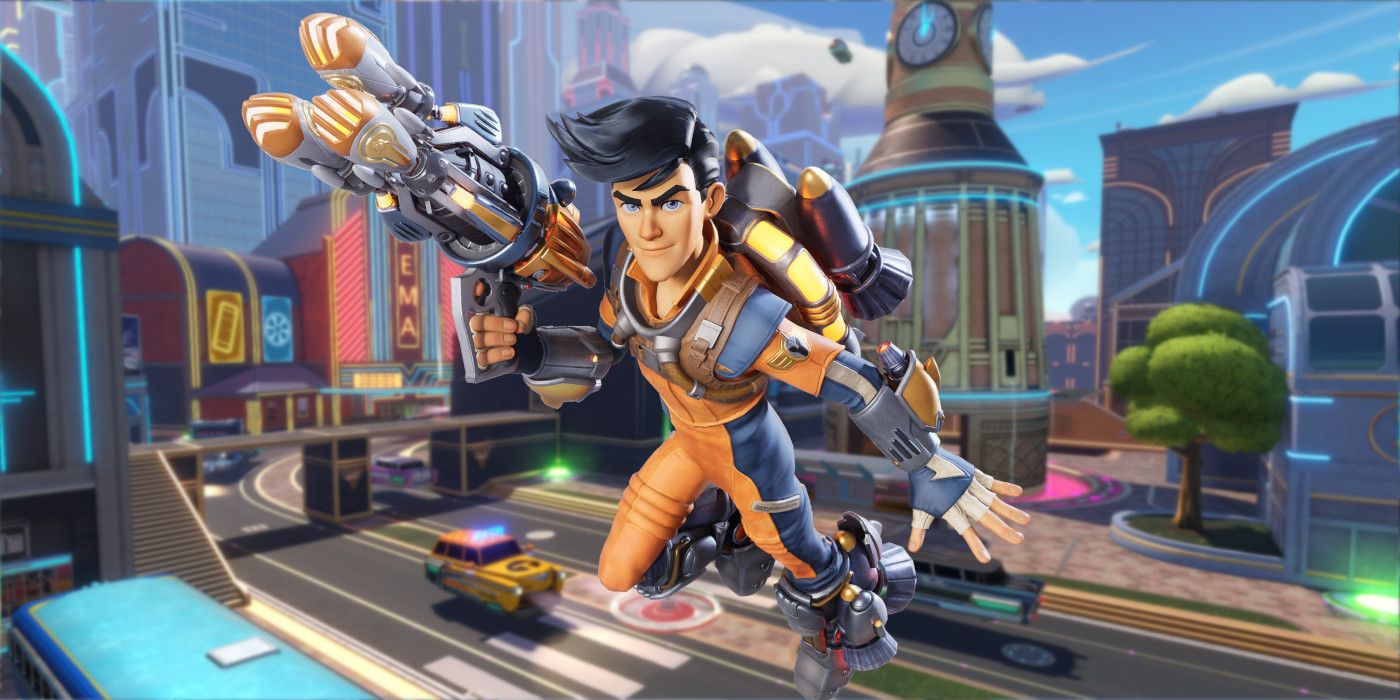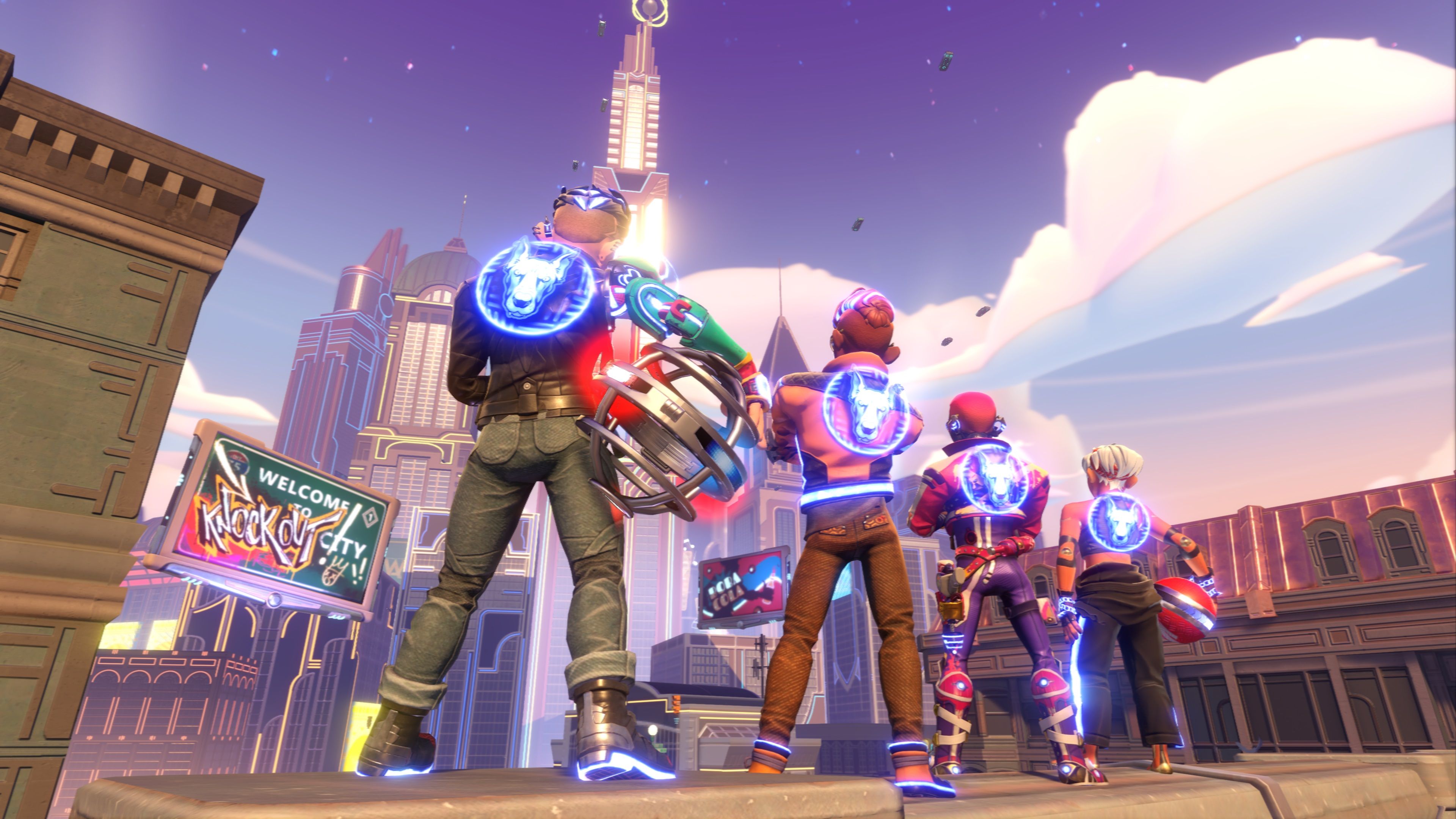How Knockout City Could Succeed Where Rocket Arena Failed

Electronic Arts has announced Knockout City, a new 3v3 online multiplayer game that leans more towards all-ages than the typical shooter. That might sound familiar, and there's a reason for that. 2020 saw Electronic Arts release Rocket Arena, another game that could very much fit that description. The rocket launcher-obsessed third-person shooter had some potential at launch but failed to grab a wide audience over time. It seems destined that players will compare these two games, which means that they'll be even less inclined to visit Knockout City when it makes its debut. After giving both games a shot, the comparisons don't really hold water. Knockout City has learned from Rocket Arena's release, and could use that knowledge to become a new online favorite.
Before even getting into the games, one difference between the two releases is a course-correction on price. Both games are multiplayer titles supported by microtransactions and optional cosmetics, but they also have an upfront cost. Rocket Arena launched as a $30 game alongside a $40 deluxe edition. The game's price was reduced not too long after to a mere $5, and that's where it sits today. Knockout City is slightly better positioned at a $20 price point, but it's hard not to wonder why either game wouldn't just be free to play alongside in-game monetization. That has been the winning strategy for deathmatch games as of late, and building an audience at launch is vital to keeping online-only games afloat in the long run.
Besides a lower price, Knockout City is running a free trial period across consoles and PC when it launches in May. This will let players experience the full game without ponying up the cash, and that's a great start considering how unique Knockout City's gameplay loop is. It is a basic deathmatch game at its core, but trades in traditional firearms for dodgeballs and precise aiming for rhythmic timing. It's tough to get a grasp on without trying it out, so a free demo of some kinds is almost a requirement to get the game off the ground. This still isn't a guarantee, as Rocket Arena also had opportunities for players to get in for nothing, but Rocket Arena also has one aspect that held it back from popular acceptance.

Like a lot of multiplayer experiences, Rocket Arena employs a hero-based class system. Each character has unique weapons and abilities that are supposed to give everyone their own special way to play. When the system works, it's a dynamic way to ensure gameplay variety, but it can become quite tiresome when everyone is doing it.
Knockout City's developers tested out a similar system as they made the game, but found that it wasn't meshing with the mechanics on offer. Because of that change, Knockout City stands as a unique offering in today's market. It's still got the cosmetics and progression of its peers, but the game is purely about mastering a base set of mechanics rather than balancing for a dozen or more unique characters.
With a change back to a more traditional style of multiplayer gaming, Knockout City might just capture the attention of players looking for something different. It could also theoretically appeal to younger players who can't get their parents to buy them Call of Duty, but it's really hard to argue with the free price point of games like Fortnite and Roblox for that age demographic. The next EA Original still has a long road ahead of it, but there's something about the game's '50s vibe and colorful worlds that could be just appealing enough to make it all work.
from ScreenRant - Feed

